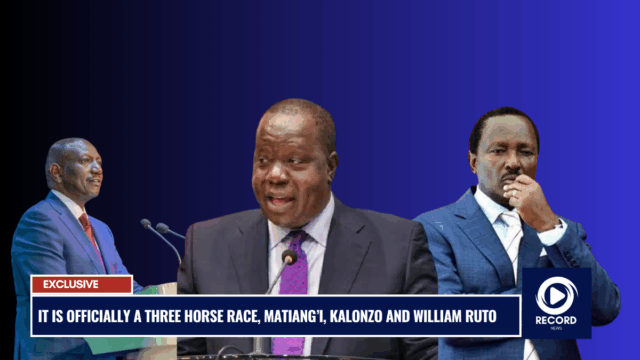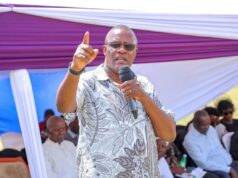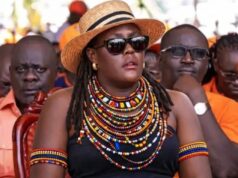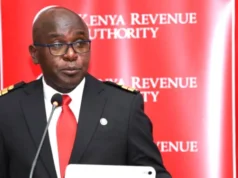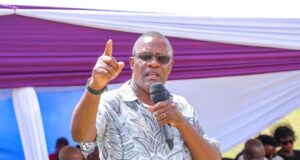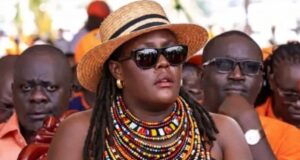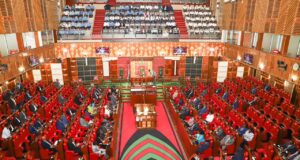The politics of endless speculation, shifting loyalties and small players circling around the grand stage has reached its natural conclusion. The field has narrowed and the contest has taken a definite shape. It is no longer a question of who might or who could, it is now a question of which among the three men standing tall will command the loyalty of the people and eventually take the crown.
Fred Matiang’i has been unveiled by Uhuru Kenyatta at the Jubilee National Delegates Convention, Kalonzo Musyoka is quietly but firmly anchored by Rigathi Gachagua who is emerging as his strongest pillar in Mount Kenya, and William Ruto carries the backing of Raila Odinga with the formidable orange base behind him. Every other contender, no matter how loud, no matter how ambitious, will eventually find themselves aligning behind one of these three pillars. That is why this moment can be declared without hesitation. It is officially a three horse race.
Uhuru Kenyatta did not just whisper his choice, he announced it boldly in front of the delegates of his party. He named Fred Okeng’o Matiang’i as the man he is backing, drawing a line and signaling that he is not retreating from politics as many had thought. Uhuru is a former president who still commands respect, structures, and loyalty in parts of the country, especially in Central Kenya and across some strong Jubilee networks.
His choice of Matiang’i may have surprised some, but for close watchers it was only a matter of time. Matiang’i has long been seen as Uhuru’s trusted technocrat, the bulldog who delivered on tough assignments in government. He has now been handed the political crown to carry forward the legacy.
Matiang’i’s strength does not lie only in Uhuru’s endorsement. It lies in the wave of youthful energy that is sweeping across the country. The Gen Z and millennial population, who have defined themselves as restless, questioning, demanding, and unwilling to be taken for granted, see in Matiang’i a candidate who can align with their aspirations.
They do not want old rhetoric, they do not want the same tired promises. They want a leader who is seen to deliver results, who is bold enough to confront cartels, and who has the courage to make unpopular but necessary decisions. Matiang’i’s history in the ministries of Education and Interior has positioned him as such a figure. His campaign therefore is naturally vibrant, easy to market, and attractive to young people who form the backbone of voting blocs in the coming years. Every politician desires the youth because they are not only voters but also campaigners, influencers, and mobilizers in the age of social media. In Matiang’i, they have found someone they can rally behind.
Yet Matiang’i faces a delicate problem. The older class of politicians who have made careers out of deal making are not sure he is one of them. To them he is still a technocrat, a doer who follows instructions but not one to bend or cut bargains in smoky backrooms. They suspect he is too hardline, too close to Uhuru, too rigid to compromise. They ask themselves if he will ever cut a deal that allows them space to benefit. In Kenyan politics, perception is as powerful as reality. If the class of perennial deal makers sees him as inflexible, then they hesitate. They look at Kalonzo Musyoka instead.
Kalonzo’s story is the opposite of Matiang’i’s. He is not a newcomer to politics. He is not a technocrat thrust into the limelight. He is a seasoned hand, a man who has been in the game for decades, a vice president, a long time ally of major players, and a survivor of storms. His greatest asset is trust. Many politicians see him as loyal, predictable, and easy to go along with. They know what to expect with him, and in politics that counts for much. You can gamble with a new name, but you feel safe with Kalonzo.
Rigathi Gachagua, who many thought would chart his own path, has quietly aligned himself with Kalonzo. In doing so he has offered him a pillar in Mount Kenya. Gachagua brings with him a network of influence and the ability to sway opinion in the region. Together, Kalonzo and Gachagua form an unlikely but potent partnership, one that creates ripples across central and eastern Kenya.
For Kalonzo, this is the most strategic moment of his long career. He has always been seen as a dependable deputy, a number two who never fully broke into the number one position. This race gives him the best shot at presidency. With Gachagua, he consolidates Mount Kenya. With his own Kamba base, he commands Eastern. With seasoned politicians flocking to his corner, he grows a coalition of loyalty and trust. His appeal is not youthful energy like Matiang’i’s, it is not bold promises like Ruto’s, it is steady compromise, unity, and predictability. He offers himself as the compromise president, the man who can hold the country together when tempers rise and ambitions collide.
William Ruto’s position is complicated and yet powerful. He is already the sitting president. Kenyans therefore do not look at him with the eyes of hope or theory. They look at him with the eyes of expectation. They expect delivery. They expect results. They expect him to show that his presidency can work for the people. Ruto knows that his record is now under daily scrutiny. He must deliver development, he must create jobs, he must fight the cost of living. If he fails to deliver, he cannot hide behind promises. The electorate will turn away from him.
What makes Ruto formidable is the backing of Raila Odinga. Raila is not just an individual. He is a movement. He is an institution. His orange base is deep, loyal, and widespread. By standing behind Ruto, Raila has given him an anchor, a voice, and a legitimacy that stretches across communities. But that support is not guaranteed forever. The orange base can swing. If they sense that Ruto is not meeting expectations, if they feel betrayed or sidelined, they can easily drift towards either Matiang’i or Kalonzo. This makes Raila’s endorsement both a strength and a burden. It strengthens Ruto’s reach but also puts him under immense pressure to keep Raila’s fraternity satisfied.
And so here we are. Three men stand at the front. Behind them, three powerful pillars hold the fort. Uhuru behind Matiang’i, Gachagua behind Kalonzo, Raila behind Ruto. Every other politician must now choose where to align. Pollsters should stop wasting time on distractions. The formations are set. The contest is defined. The people must now watch and weigh who among the three can capture the spirit of the nation.
Kenya has often witnessed crowded races, filled with noise and endless speculation. But rarely has the race been as clear as it is today. This time it is a triangle of power. It is officially a three horse race.


